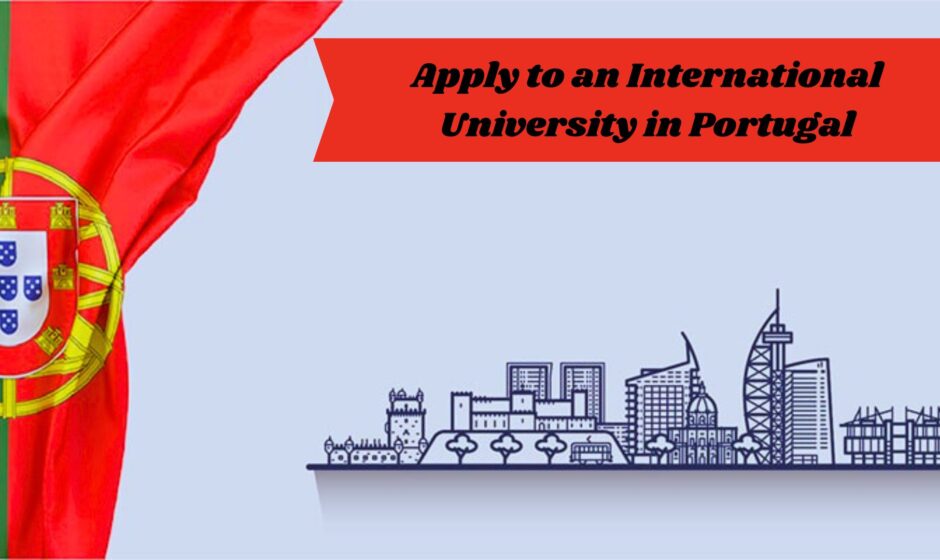Portugal is a country with a rich culture and history and in the 19th century and the first half of the 20th century, it was a major colonial power in the world. Today also, Portugal is famous for various aspects one of which is its education system. The universities of Portugal are famous not only in the nation but also around the world. How to apply to an international university in Portugal is a major concern for many students which you will read in this article starting from the education system.
Introduction: Overview of the Education System & Benefits of Studying in Portugal
There are two main sectors of the Portuguese higher education system, which are universities and polytechnic institutes. If you want to get academic and theoretical education, you can enroll in a university in Portugal. On the other hand, if you are interested in practical and vocational training, then a polytechnic can be the best for you. In both types of institutes, you can find undergraduate, postgraduate, and doctoral programs.
The major benefit of studying in Portugal is that you get an opportunity to study in an EU country with a globally recognized education system. Moreover, the tuition fees in Portugal are affordable. Besides, you get international exposure; therefore, you are given preference by many employers from all over the world.
Eligibility Requirements
There are certain eligibility criteria that you need to fulfill for studying in Portugal.
- Academic Criteria: High school education, class 12th, or equivalent is required for an undergraduate program. You should be a graduate for enrolling in a postgraduate program. Postgraduate degree is needed for the doctoral program.
- Language Proficiency: If you are going to enroll in an English-taught program, you need to have proof of English proficiency such as TOEFL or IELTS. Similarly, you need to pass the Portuguese language test to enroll in the courses taught in Portuguese.
- Visa Requirements: Non-EU students need a student visa. You must be accepted by a Portuguese institution before applying for a visa.
Types of Universities & Courses
Both public and private universities are available in Portugal. If you want to study at a university with lower tuition fees, you should choose a public university. On the other hand, private universities may have higher fees but they offer more specialized courses. So, for a specialized course, you can choose a private university.
Degrees are offered at three levels in the universities in Portugal.
- Undergraduate (Licenciatura): Typically a 3-year program.
- Master’s (Mestrado): 1-2 years in duration.
- Doctoral (Doutoramento): Usually takes 3-4 years to complete.
There are numerous streams in which courses are offered to international students among which the prominent ones include Business, Engineering, Medicine, Arts, and Tourism.
Researching Universities
Before applying, you should thoroughly research the universities that fulfill your educational needs. Some of the top institutions in Portugal include the University of Lisbon, the University of Porto, and Universidade Nova de Lisboa. You should check the global rankings of the universities. The QS World University Rankings 2025 and Times Higher Education University Rankings 2024 are the two parameters that are popular today. All information is available online today.
Application Process
Here are the steps that you need to follow for the application process.
1. Choose a program.
2. Check deadlines.
3. Prepare documents.
4. Submit application.
5. Follow up (track your application status).
Application deadlines vary but usually fall between January and July for courses starting in September.
Required Documents
International applicants need to submit several documents and typically you need to submit the following documents.
- Academic Records: Transcripts and certificates from previous education.
- Language Proficiency Test Scores: TOEFL, IELTS, or Portuguese language test results.
- Statement of Purpose (SOP): Explain why you wish to study the chosen course.
- Letters of Recommendation: From teachers or employers.
- Passport: A copy of your valid passport.
- CV/Resume: Particularly for master’s and doctoral applicants.
Admission Tests & Interviews
Some universities may offer admission tests related to the program of study. Also, a student may be required to give an interview either face-to-face or via video conferencing. These components are very important in admission and that is why it is recommended to do the preparation thoroughly.
Tuition Fees & Scholarships
Portugal’s tuition fees for international students differ with the course and the university of the learner’s choice. A tuition fee in public universities is affordable, especially for undergraduate programs that range from €1,500 to €5,000 annually and for master and PhD students €2,500 to €10,000 annually. Most universities provide scholarships, so learners should seek and apply for scholarships and other financial assistance to be given at certain times.
Visa Application
International students from non-EU countries are required to seek student visas (Type D). The process involves:
1. Receiving a letter of acceptance to study at a university in Portugal.
2. Apply for a visa by filling out a visa application form at the embassy or consulate of Portugal.
3. Provide other evidence offered including a letter of accommodation and evidence of funds among others.
Accommodation
There are many types of accommodation available in Portugal such as university accommodation, off-campus student housing, shared flats and houses, rental apartments, and homestays. Dormitory charges have been established at an average of 150 to 400 EUR while taking private renting charges an average of 350 to 800 EUR depending on the area. In terms of the cost structure, it is relatively low compared to other countries of Western Europe.
Student Life
Portugal is a country with a long history and great culture and thus has a lot to provide in terms of social activities, celebrations, and other tourist attractions. Most universities have active student associations which are perfect for making new friends. Also, international students are allowed to work a maximum of twenty hours a week while studying.
Final Steps: Enrolment & Settling In
After acceptance, you should complete your enrollment by paying the fees that are required. It is time to make some decisions like choosing when to move, where you will be living, and whether you need health insurance. When you get there, you shall be required to go to the immigration office to formalize your student visa. From there, you can begin to have fun with your academic experience in Portugal!



